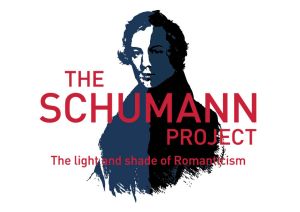Review: Oxford Lieder Festival ‘Robert & Clara, Songs & Duets’
This piece was originally published in the Oxford Culture Review. The recital took place at the Holywell Music Room on Saturday 15 October, and was part of ‘The Schumann Project’ at the Oxford Lieder Festival 2016.
A year after the 2015 Oxford Lieder Festival’s opening recital, I found myself not looking at Sarah Connolly from the top tier of the Sheldonian, but metres away from her in the altogether more appropriate acoustic and intimate setting of the Holywell Music Room. No sooner had accompanist Eugene Asti begun to play the fervent opening strains of Robert Schumann’s ‘Widmung’ than Connolly underwent that distinctive visible transformation that she always does when she gets—for want of a better phrase—into the zone. Her thousand-yard gaze shifts, as her rich mezzo seemingly effortlessly navigates long phrases, to direct eye contact with audience members. It is simply impossible to let your attention lapse. At the da capo, the nuances of her interpretation shine through. She drops to a still-resonant pianissimo and the smallest variations in placement and phrasing have enormous affective connotations.
‘Widmung’ was only the first song in a programme of 31. The Lied recital can be a strange format for a concert-going audience accustomed to long symphonic works, concerti, and operas. A series of two- or three-minute miniature songs can feel disjointed; or, if their gestures are too similar, or their climaxes too intense and frequent, it can feel exhausting. However this was not the case today. Soprano Sophie Karthäuser’s Mozartean precision (she is fresh from a New York production of Idomeneo under René Jacobs) and bright, sparkling top register brought an entirely different character to the genre, and her choices of repertoire during the first half offset Connolly’s in a fascinating way. In a programme where Clara Schumann’s compositions were juxtaposed with those of her husband, hearing Karthäuser’s renditions of Robert’s ‘Song of the Bride I & II’ and ‘The Flower of Submission’ alongside Connolly’s darker ‘Mother’s Dream’ (in which an infant is picked apart by an evil raven and fed to its young), and ‘The Fiddler’ (unhappy brides, ageing musicians, madness) forced the audience to consider the ideological world in which Clara was composing; one where the poet’s woman was reduced to wife, mother, or – the second song on the programme–‘Easternrose’.

The idea that Clara might somehow have been a victim, was nevertheless magnificently challenged by her compositions in the programme. Karthäuser’s contribution included ‘He Came in Storm and Rain’ (‘My friend journeys on/ … he shall be mine wherever he goes’), while Connolly sang Friedrich Rückert’s Shakespearian ‘If you love for beauty[/youth/riches], O love not me’ and the gentle lullaby of friendship and camaraderie ‘The Good Night I bid you’. All of these Clara settings featured Rückert’s poetry, and yet these manifestly careful repertoire choices conveyed two radically different compositional voices and constructions of womanhood (at times I couldn’t help but think again of Connolly’s recital in the Sheldonian Theatre last year, when she delivered Schubert’s ‘Men are Evil’ with strident glee). Fine examples of this from the first half of the programme included accompanist Asti’s unexpected and compelling segue between ‘Mother’s Dream’ and ‘The Soldier,’ and Connolly’s operatic rendition of ‘My Lovely Star!’.
In contrast, there was a real injection of wit from some of the duets. ‘First Encounter’ was a stand-out example, with both singers leering their way through the description of a young man, the German ‘schlank’ (meaning ‘slim’) enunciated with relish. Asti’s accompaniment was instrumental in conveying the hyperbolically camp melodrama in both this duet and the following ‘Love’s Sorrow’.
The second half presented two song cycles: Clara’s Sechs Lieder, Op. 13, and Robert’s Sechs Gedichte und Requiem, Op. 90. It was particularly nice to hear Clara’s cycle, which is only just beginning to receive the attention it deserves. These two cycles were balanced by the short duet ‘To the Evening Star’ (by Robert). If I had to find fault with any of the performance, it would be in small moments of ensemble during some of the duets, particularly at unisons and on some sibilant consonants. Karthäuser’s pronunciation was generally not quite as clear as Connolly’s, but with the festival’s new addition of surtitle screens (a great idea), it would have been easy not to notice. A few of these moments were ironed out for the broadcast edit (which will be aired on BBC Radio 3 in early November) at the end, when we were also treated to a complete reprise of ‘Widmung’ by Connolly, which had been mis-recorded at the start of the evening. A highlight of the second half was Karthäuser’s immaculate control of intensity throughout Clara’s iconic ‘Die stille Lotusblume’. Each stanza blossomed and faded exponentially before the final, pertinent, question, of the dying swan (‘can you fathom the song?’) faded away into Asti’s captivating hanging cadence. Another highlight was Connolly’s witty delivery of ‘A Blacksmith’s Song’, stamping her foot as she bade her ‘steed’ be ‘frisky and good’.
I make no secret of my Connolly-worship; I have no qualms about describing her as one of the world's best living mezzos. So to compare her voice to one so different as Karthäuser’s--which I’m sure I would have gushed about had I heard her in isolation--would frankly be unfair. The only exception to this is perhaps, again, small moments in a couple of the duets when her low register simply lacked the richness and colour of Connolly’s (how could it not?). Nevertheless, this recital really embodied everything I wanted to hear from the Oxford Lieder Festival: terrific singing, sensitive yet interesting accompaniment, and a balanced and thought-provoking programme containing what for many members of the audience would have been as-yet unheard repertoire. I'm glad it sold out.










Comments
Post a Comment